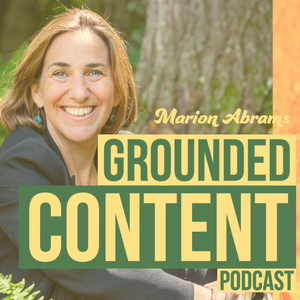
Ep.1 - Things to know before moving to Italy
05/03/23 • 20 min
Episode 1 sheds light on common misconceptions about the Italian visa and citizenship application process that can ruin your dream of living and working in Italy.
Capecchi Legal often receives inquiries from people who have already made costly mistakes due to misleading information they read online.
Michele Capecchi together with his legal assistant and co-host of the show, Monica Sharp, guides you through the process of moving your life and business in Italy, helping you avoid potential pitfalls in Visa, real estate and citizenship applications.
Some highlights of the episodes:
- Tourists cannot stay in Italy longer than 90 days without a visa or permit to stay
- Tourism "visa" or status cannot be extended unless there is an objective emergency (normally heath related).
- Buying a property in Italy does not automatically grant a permit to stay
- A Visa is NOT a permit to stay. Things to know when you get a visa, and what to do when you land in Italy.
- Codice Fiscale (the Italian “social security" equivalent). It does not allow you stay in Italy. But does not determine your tax liability.
Taxes
Tax liability in Italy is based on presence in Italy, not on citizenship. That means that if you are an Italian who formally lives abroad (enrolled at AIRE) you are probably exempt from filing income taxes. On the other side a NON Italian who lives formally or “de facto” for more than 183 days in Italy, is expected to file his taxes in Italy.
So reacquiring Italian citizenship (if you maintain your residency abroad and you don’t spend more than 183 days in Italy) could not determine your tax liability in Italy.
Worldwide taxation principles and “no double taxation” principles.
Driving in Italy
and the conversion of the foreign driving license after ONE year of residency in Italy - Driving without a license in Italy can result in significant consequences, including the confiscation of the vehicle.Final wrap up of the following episodes
_________________________________
The Italian Legal Whisperer TM️©️
Hosted by Avv. Michele Capecchi LL.M.
Email: [email protected]
Follow us on social media:
- Instagram: @capecchilegal
- LinkedIn: https://www.linkedin.com/company/michelecapecchi
Learn more about our law firm at www.CapecchiLegal.com
Copyright © [2023] Capecchi Legal. All rights reserved.
Disclaimer: The information provided in this podcast is for general information purposes only and does not constitute legal advice. Please consult with a licensed attorney for legal advice specific to your circumstances.
Episode 1 sheds light on common misconceptions about the Italian visa and citizenship application process that can ruin your dream of living and working in Italy.
Capecchi Legal often receives inquiries from people who have already made costly mistakes due to misleading information they read online.
Michele Capecchi together with his legal assistant and co-host of the show, Monica Sharp, guides you through the process of moving your life and business in Italy, helping you avoid potential pitfalls in Visa, real estate and citizenship applications.
Some highlights of the episodes:
- Tourists cannot stay in Italy longer than 90 days without a visa or permit to stay
- Tourism "visa" or status cannot be extended unless there is an objective emergency (normally heath related).
- Buying a property in Italy does not automatically grant a permit to stay
- A Visa is NOT a permit to stay. Things to know when you get a visa, and what to do when you land in Italy.
- Codice Fiscale (the Italian “social security" equivalent). It does not allow you stay in Italy. But does not determine your tax liability.
Taxes
Tax liability in Italy is based on presence in Italy, not on citizenship. That means that if you are an Italian who formally lives abroad (enrolled at AIRE) you are probably exempt from filing income taxes. On the other side a NON Italian who lives formally or “de facto” for more than 183 days in Italy, is expected to file his taxes in Italy.
So reacquiring Italian citizenship (if you maintain your residency abroad and you don’t spend more than 183 days in Italy) could not determine your tax liability in Italy.
Worldwide taxation principles and “no double taxation” principles.
Driving in Italy
and the conversion of the foreign driving license after ONE year of residency in Italy - Driving without a license in Italy can result in significant consequences, including the confiscation of the vehicle.Final wrap up of the following episodes
_________________________________
The Italian Legal Whisperer TM️©️
Hosted by Avv. Michele Capecchi LL.M.
Email: [email protected]
Follow us on social media:
- Instagram: @capecchilegal
- LinkedIn: https://www.linkedin.com/company/michelecapecchi
Learn more about our law firm at www.CapecchiLegal.com
Copyright © [2023] Capecchi Legal. All rights reserved.
Disclaimer: The information provided in this podcast is for general information purposes only and does not constitute legal advice. Please consult with a licensed attorney for legal advice specific to your circumstances.
Next Episode

Ep.4 - Elective Residency Visa - Golden Visa
Episode 4. The Elective Residency Visa in Italy – Non working visa – Also know as Retirement Visa. Is it the "Italian Golden Visa"?
Peculiarities and misconceptions.
Tax Incentives.
In this episode, we discuss the Elective Residency Visa in Italy, a special type of visa that allows foreign nationals to stay in the country for longer than 90 days without working. We shed light on the details of this visa scheme and its application process.
Firstly, the guest explains that the elective residency visa is intended for people who wish to reside in Italy without pursuing any work activity. They also emphasise the importance of respecting this requirement and showing that you have a so-called passive income. Some examples of passive income are: pensions, social security benefits, rental income from owned properties, corporate dividends, royalties, etc.
Your documents must prove your ability to generate new "fresh" (passive) income and you must prove that these income can be reasonably expected to continue over time.
You cannot rely simply on investments.
The host further explains that the elective residency visa while include the word "residency" is not the same as obtaining the "residence" (residenza) in Italy. Residence in Italy refers to your permanent domicile, whereas an elective residency visa deals with immigration.
From a cronological and logical point of view, you first apply for the Elective Residency Visa (via the consulate) then you get the permit to stay (via the immigration office in Italy), then you can apply for and request the residenza (via the local municipality, or comune)
If you want to access the public healthcare system in Italy, you need to have a residence. Therefore, obtaining an elective residency visa does not automatically make you eligible for the public healthcare system. You need to request the registration as residente, first.
When it comes to the application process, the hosts advise being flexible and adapting to the timing of the consulate. Given the impredictability of the time that the consulate can take to review your cases, is important to buy a ticket that can change your departure time to fit the consulate's schedule.
In conclusion, the elective residency visa is a great option for those who wish to stay in Italy for an extended period, and normally without a time limitation, without working. It requires planning, showing a passive income, and flexibility during the application process.
_________________________________
The Italian Legal Whisperer TM️©️
Hosted by Avv. Michele Capecchi LL.M.
Email: [email protected]
Follow us on social media:
- Instagram: @capecchilegal
- LinkedIn: https://www.linkedin.com/company/michelecapecchi
Learn more about our law firm at www.CapecchiLegal.com
Copyright © [2023] Capecchi Legal. All rights reserved.
Disclaimer: The information provided in this podcast is for general information purposes only and does not constitute legal advice. Please consult with a licensed attorney for legal advice specific to your circumstances.
If you like this episode you’ll love
Episode Comments
Generate a badge
Get a badge for your website that links back to this episode
<a href="https://goodpods.com/podcasts/the-italian-legal-whisperer-282749/ep1-things-to-know-before-moving-to-italy-35419036"> <img src="https://storage.googleapis.com/goodpods-images-bucket/badges/generic-badge-1.svg" alt="listen to ep.1 - things to know before moving to italy on goodpods" style="width: 225px" /> </a>
Copy




